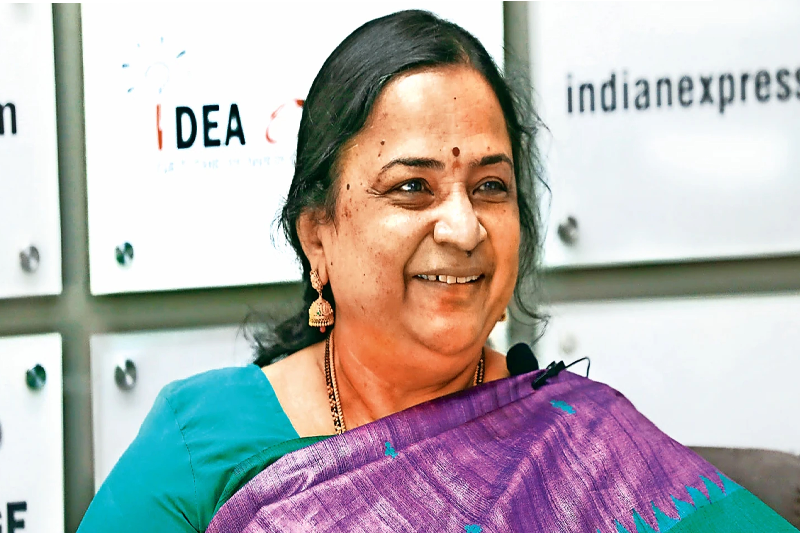
JNU V-C Faces Heat from Education Ministry for Skipping National Vice-Chancellors’ Conference
In a move that has drawn national attention, the Ministry of Education (MoE) has formally sought an explanation from Jawaharlal Nehru University (JNU) Vice-Chancellor Santishree Dhulipudi Pandit for her conspicuous absence from a two-day national conference of Central University Vice-Chancellors held earlier this month. The ministry has conveyed that her non-attendance is being “viewed seriously,” highlighting the importance of the event and the missed opportunity for institutional collaboration.
Absence at High-Level National Conference Raises Eyebrows
The conference, organized by the Ministry of Education and hosted in Kevadia, Gujarat, on July 10–11, brought together Vice-Chancellors of Central Universities from across the country. The Union Education Minister Dharmendra Pradhan, top officials from the University Grants Commission (UGC), and leading academicians were in attendance. The event served as a major platform to deliberate on the evolving role of Central Universities in shaping India’s educational landscape.
According to a letter from a senior official in the Department of Higher Education, the JNU Vice-Chancellor was formally invited well in advance. The communication noted that she had skipped both days of the conference without prior approval. The letter stated clearly that her absence was “viewed seriously” and noted that her presence and contributions were missed during important deliberations.
JNU’s IKS Conference Created a Scheduling Conflict
JNU had simultaneously organized its own academic event — a three-day conference on Indian Knowledge Systems (IKS) from July 10 to 12. The IKS event was inaugurated by former Vice-President of India, Jagdeep Dhankhar, and was focused on the revival and academic recognition of India’s traditional knowledge systems. However, the Ministry's letter acknowledged this scheduling overlap, and still emphasized that the Vice-Chancellor was expected to make an appearance at the national-level V-C conference at least on the second day, July 11.
The Ministry communicated that such conferences are essential for policy exchange, peer learning, and steering academic institutions in line with national educational goals. Despite the overlap with the JNU event, the letter underlined that her participation, even briefly, was considered essential.
Silence from JNU Leadership
Efforts by The Indian Express to reach Vice-Chancellor Pandit and the university’s media relations team yielded no response. Higher Education Secretary Vineet Joshi declined to comment on the issue. However, a senior official from the Ministry confirmed that Pandit was the only Vice-Chancellor who did not attend the conference, and therefore, the only institutional head to receive such a letter.
“She should have gone for both things — both were important,” the official stated. Emphasizing the collaborative and consultative nature of such events, he added, “When people get together, it’s an opportunity to exchange ideas… This sort of communication is just to remind somebody that being in a position of responsibility also means showing up where it matters.”
He further pointed out the considerable investment of public resources in organizing the conference — including money, time, and the presence of key stakeholders. The official characterized the Ministry’s letter as a “reminder” to sensitise institutional heads about the broader significance of such national forums.
The National Conference and Its Vision for 2047
The two-day conference, as per a statement from the Press Information Bureau, focused on a sweeping set of themes crucial to India’s higher education reform under the Viksit Bharat @2047 vision. The discussions were centered around how Central Universities can act as "drivers of educational transformation," aligned with India’s aspirations for 2047 — the centenary of its independence.
Key themes included:
- Implementation and evolution of the National Education Policy (NEP)
- Institutional governance models for greater accountability and innovation
- Research and innovation frameworks in line with global standards
- Strategies for preparing Indian universities for the global academic landscape
The conference aimed to foster meaningful dialogue among academic leaders about the role of universities in national development, regulatory transitions, and how institutions can align with upcoming policy milestones.
The event wasn’t merely a formality — it was positioned as a critical meeting point for laying the groundwork for long-term academic planning. The Ministry was clear in its stance that each Vice-Chancellor’s input was necessary for creating a shared roadmap toward institutional excellence and policy implementation.
Institutional Responsibility Under Scrutiny
The incident puts a spotlight not only on scheduling conflicts but on the broader responsibilities of university leadership. At a time when educational reforms are moving at an accelerated pace, the absence of a Vice-Chancellor from such an event raises questions about priorities and institutional engagement with national policy objectives.
While Pandit’s commitment to advancing Indian Knowledge Systems is not in question — particularly given JNU’s role in leading that discourse — the Ministry’s view indicates that such efforts should not come at the expense of participation in national strategic dialogues.
Final Note
This episode serves as a reminder that leadership in academia extends beyond campus initiatives. In the context of building a cohesive, future-ready higher education ecosystem, institutional heads are expected to balance local academic priorities with national commitments.
As of now, the Ministry awaits a formal response from the JNU Vice-Chancellor. Whether this leads to further administrative action or a revision in scheduling protocols remains to be seen, but the message is clear: engagement at the national level is not optional — it is integral.



